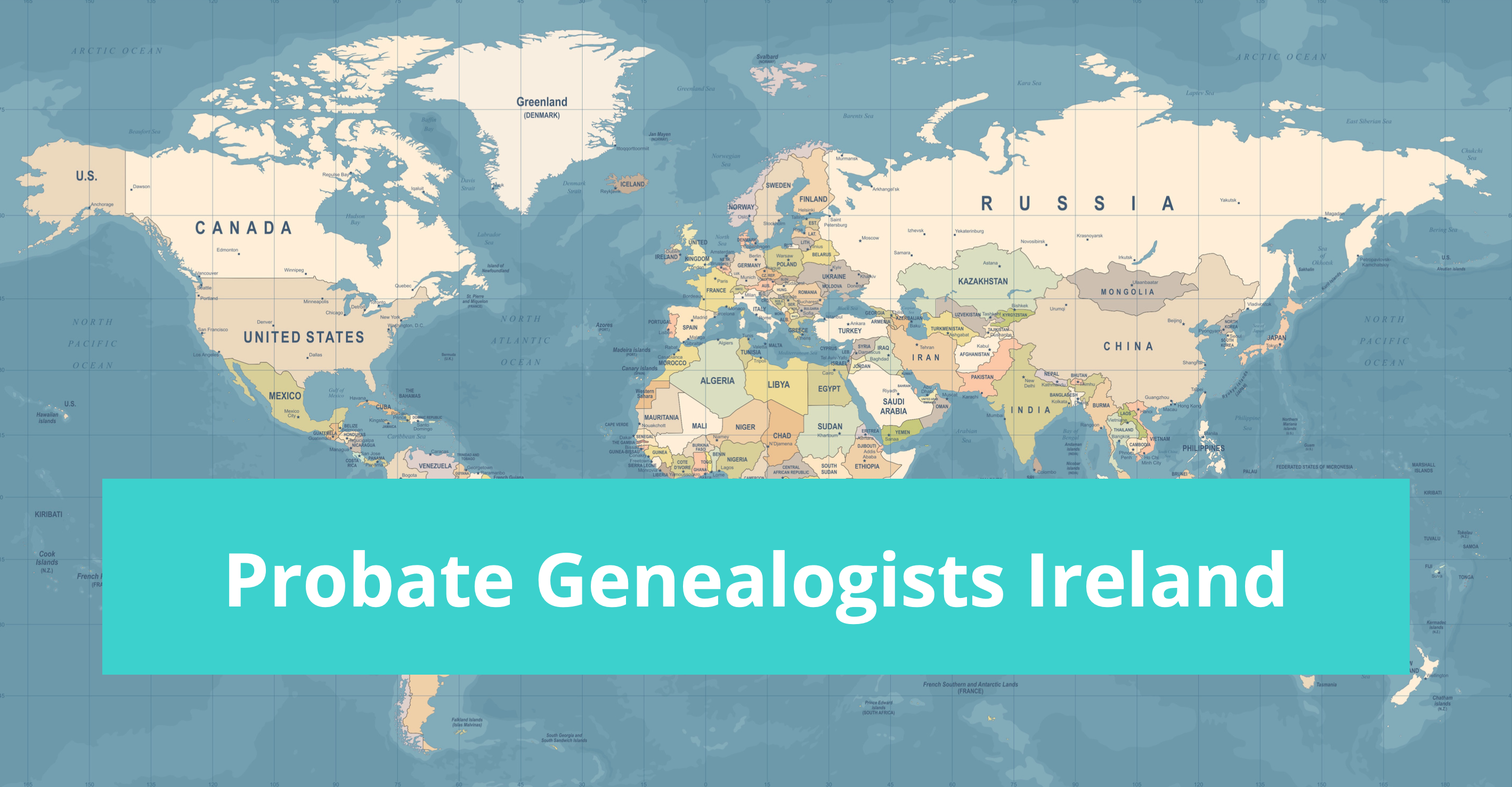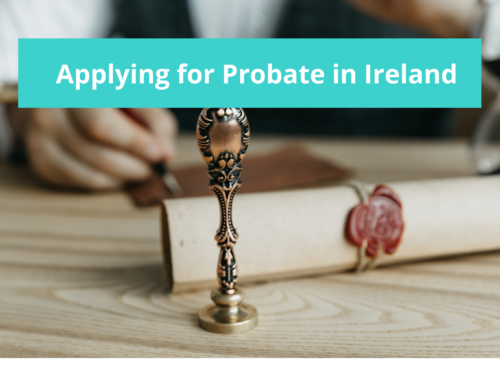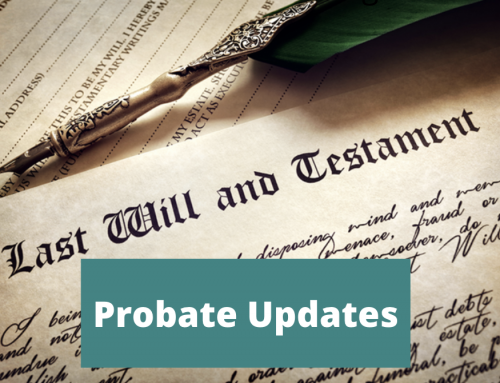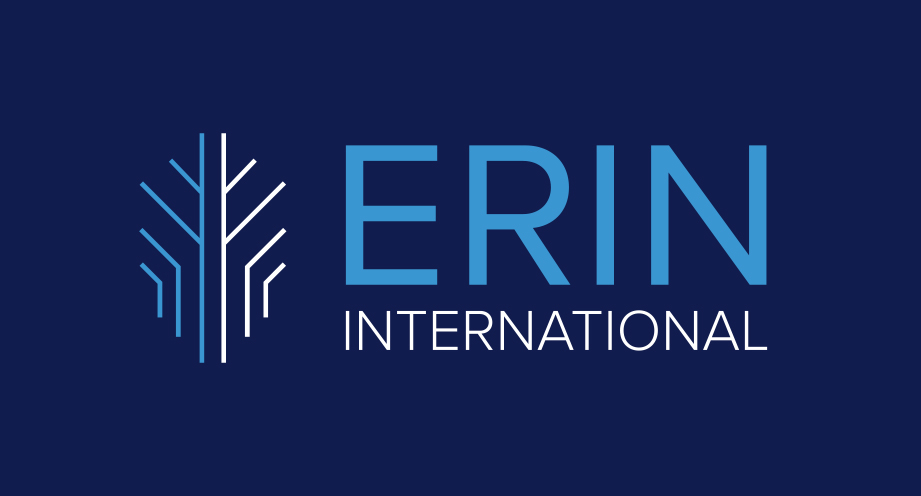
Probate Genealogists Ireland
Probate Genealogists Ireland
What are probate genealogists and what do they do?
While traditional genealogy involves the carrying out of research to establish one’s heritage or family history, probate genealogy differs slightly. It is a niche industry that exists to service solicitors or legal personal representatives (LPRs) who wish to find the correct people to whom to lawfully distribute an estate.
The services of a probate genealogist are beneficial under various circumstances. Under Irish probate law, the first thing that needs to be assessed when someone passes away is whether that person died testate or intestate. If testate, it may be that a named beneficiary needs to be located, and if intestate, the entire line of entitled beneficiaries might need to be identified and located. Regardless of the circumstances, a professional probate genealogist can assist in resolving the matter.
Make a Will
When a person makes a will they are said to have died testate.
It can often occur that one or more beneficiaries named in a will have gone missing. Family members can become estranged from or lose contact with each other. When this situation occurs, it can fall on the executor of the will to trace those missing legatees.
In our experience, executors may not have known the named beneficiary, may not know where they are, or even if they remain living or have since become deceased. Part of the service provided by probate genealogists is to establish whether missing beneficiaries named in a will are still alive and to trace their whereabouts if living.
If deceased, we would need to provide supporting evidence of this in the form of a death certificate. Our job is to then provide verified contact details of next of kin with supporting evidence back to the solicitor or LPR so as to enable them to distribute that portion of the estate lawfully.
When a named beneficiary in a will is found to be deceased, it can happen that their share will pass on to their next of kin (if they themselves died intestate) or to named beneficiaries in their will (if testate). Under Irish intestate law, whether relatives of a deceased beneficiary will inherit depends on a number of factors, such as when the would-be entitled beneficiary passed away, and what the relationship of that beneficiary would have been to the deceased person.
For example, under Irish law if a named beneficiary in a will who is a first cousin of the Deceased predeceases the testator, that share of the estate will need to be distributed by way of intestacy in the absence of a gift-over or residuary clause. This gives rise to what is known as a partial intestacy, in that some elements of the estate will be distributed as per the wishes of the testator laid out in the will, while other elements will be distributed among the next of kin – those that are on the blood line and legally entitled to inherit under the laws of intestacy.
Trace Next of Kin
When someone passes away without having made a valid will, they are deemed to have died intestate. The distribution of an estate is then calculated by ascertaining who the entitled next of kin will be. Under Irish law, this can be calculated by referring to Part VI of the Succession Act 1965. Under Part VI, Sections 66-70 of the Act lay down the order under which estates are distributed under intestacy, while Section 71 refers to the ascertainment of next of kin.
Being able to identify who is entitled to inherit under intestacy is an important part of the work of a professional probate genealogist. The intestacy laws vary from state to state, and each jurisdiction will have their own rules in terms of how an estate is to be divided up.
Heir Hunters Ireland
Nowadays, probate genealogists are commonly known as “Heir Hunters” after the BBC programme of the same name. In the UK, the Treasury Solicitor releases details of unclaimed estates to the general public and this list, known as the Bona Vacantia list, is monitored by probate genealogy firms who try to trace the next of kin as quickly as possible.
No such list exists in Ireland and the onus is on solicitors and/or legal personal representatives to trace missing beneficiaries or next of kin. It can sometimes happen that no next of kin exists and that the bloodline of a deceased person will simply die out. When this situation occurs, the State will become the Ultimate Intestate Successor as set out in Section 73(1) of the Succession Act 1965.
“No Next-of-Kin”
As professional probate genealogists, we often hear the phrase that a deceased person had “no next-of-kin”. While there may be no known next-of-kin, the likelihood of the bloodline dying out is, in our experience, extremely rare. As professional probate researchers, we have had numerous cases like this referred to us, where a deceased person may not have known their extended family.
At Erin Research, we have identified and traced numerous entitled family members worldwide that became beneficiaries to estates of relatives they never knew. In some cases, the blood relationship is close, while in others we have had to trace relatives as distant as second cousins twice-removed. Regardless of the circumstances, our team of experienced professional genealogists have always found a way to trace those entitled to benefit.
We recommend to probate practitioners that when you hear the term ”no next-of-kin” that you consider using the services of a professional firm of probate genealogists to assist in determining whether this is actually the case or not.
Three Services Every Solicitor Should Know Of
As a firm set up to assist solicitors and the Irish legal profession, we regularly come across different cases and scenarios where help is needed, but either the client or the solicitor are unsure where to turn.
Examples can include estates that have not been attended to for months or years due to ongoing family issues or disputes, next-of-kin who are known to exist but who have been unresponsive to correspondence thus far, and clients who feel they need to trace all family members before they can engage with a probate solicitor.
In our dealings on these cases we like to assure our clients from the start that their case can be resolved and in most cases, within a shorter time frame than expected. This news is always welcomed by all parties involved.
At Erin Research, we have three research services that help resolve complex probate cases. These are:
Have you identified the beneficiaries but have not been able to establish contact? There can be any number of reasons why this may happen. We can take the details you may have for missing beneficiaries and trace them, wherever they may be worldwide. This can mean working domestically, but also with our network of agents overseas if required.
Have you confirmed who all of the beneficiaries are? Estate distribution can become more complex when the deaths have occurred of beneficiaries involved and their next of kin or the beneficiaries to their estates then need to be traced. We can save you time and effort in circumstances like this, allowing you as a lawyer to concentrate on other aspects of your business.
Perhaps you have been given a case where a family tree has been provided? Perhaps your client suspects there were long-lost family in another country? Perhaps you are dealing with a very large family, some of whom emigrated long ago? How can you be sure the family tree you have in your possession is accurate? We have seen on many occasions where family members simply did not know of a relative’s existence, which can cause complication after an estate has been distributed. We work to verify family trees and give peace of mind that that an estate will be distributed fairly and legally.
On occasion, for various reasons, cases are presented where very little information is available on a deceased person’s family. Often these cases can be complicated and from a human element, sad or upsetting. We have heard it many times…“there is no next of kin”! This is rarely the case however as a family dying out completely is unusual and we would normally identify and trace entitled relatives under such circumstances. We take great care to assist legal firms working to solve these cases as quickly as possible.
We have also come across intestate cases, sometimes called ‘dinosaur cases’ that have been sitting on account for a number of years. In some instances, a practice may feel there is no other option but to send such a case to the Chief State Solicitor. In these cases Erin Research will take on the research free of charge. If (and when) we locate an entitled relative, we would encourage that individual to act as administrator and instruct your firm to act on their behalf. We call this our Administrator Search service.
At Erin Research we are happy to discuss all such events and will do what we can to assist you in administrating complex probate cases in a timely and straightforward manner as possible.
The thing to remember is this: we will look at any case, no matter how small, and will work tirelessly to resolve it for you and your clients.
Erin Research is Ireland’s leading probate genealogy firm, trusted by the Irish legal profession to trace missing beneficiaries and next of kin to estates worldwide.
To enquire further about our services or to refer a case, please go to: https://www.erinresearch.ie/contact-us/







